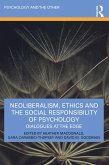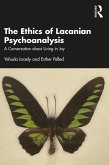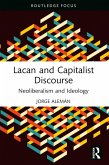Dieser Download kann aus rechtlichen Gründen nur mit Rechnungsadresse in A, B, BG, CY, CZ, D, DK, EW, E, FIN, F, GR, HR, H, IRL, I, LT, L, LR, M, NL, PL, P, R, S, SLO, SK ausgeliefert werden.
"This book is a portrait of psychology in the heart of the beast. It is a remarkable collection of challenging and hopeful responses to psychology's collusion with toxic forces that threaten American society. Several of psychology's great interdisciplinary thinkers spell out the dangers and opportunities that confront the profession as it both flees from and engages its ethical responsibilities." Philip Cushman is a retired teacher, psychotherapist, and semi-retired writer, hisrecent publications include Travels with the Self: Interpreting Psychology as Cultural History, and Hermeneutic Approaches to Interpretive Research: Dissertations in a Different Key









